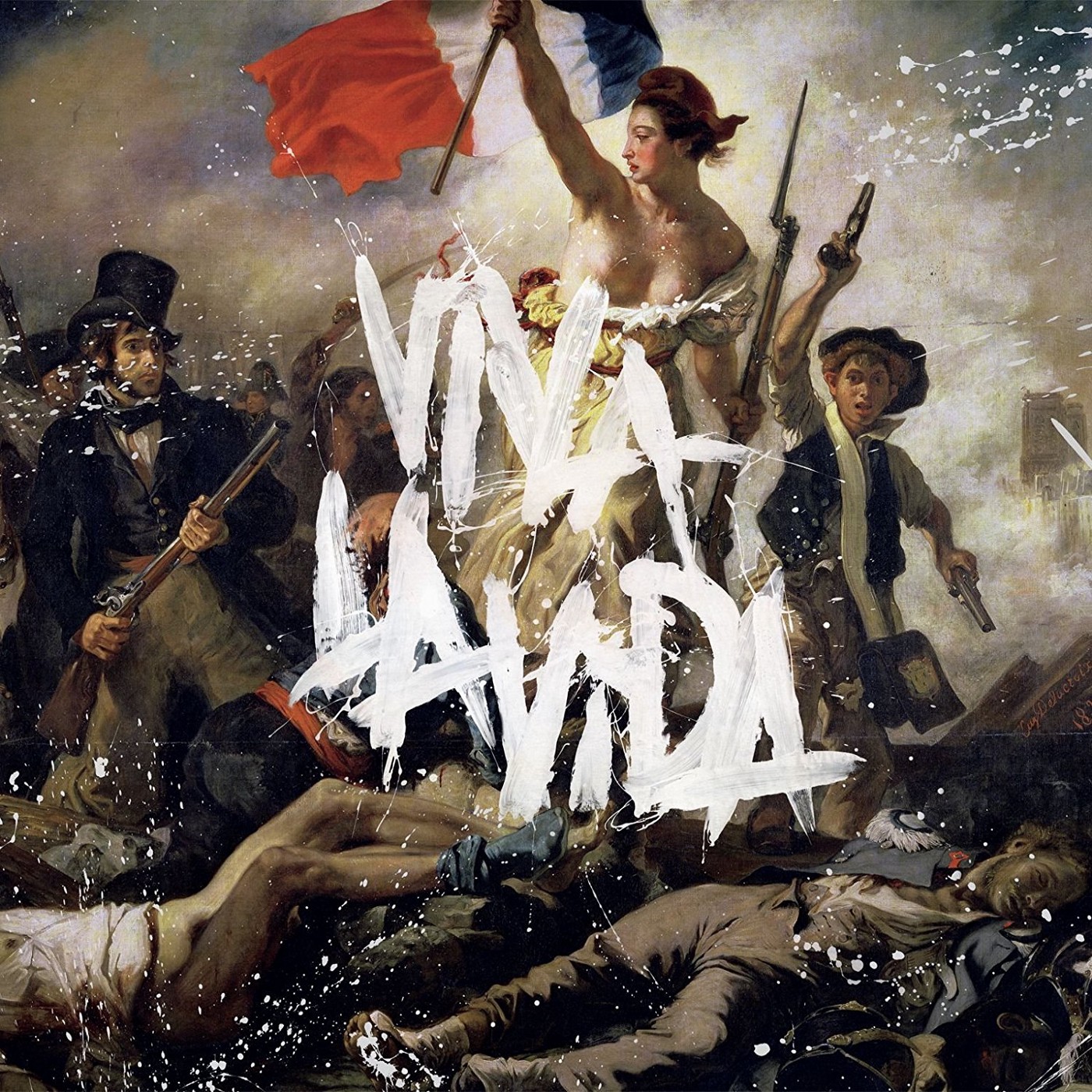
Although Coldplay?s ?Viva la Vida? may be considered a modern classic, the underlying themes of the French revolution may be lost in it?s melodic strings. Despite the fact that ?Viva la Vida? is Coldplay?s highest charting single, many fans fail to recognize the central idea of the song and ultimately the album. ?Viva la Vida?, the song and album, is a retelling of the French revolution and the death of King Louis XVI.
First to dissect is the album cover. Coldplay?s fourth studio album, ?Viva la Vida or Death to All His Friends? often simple referred to as ?Viva la Vida?, features a rendition of the 1830 historical painting known as ?Liberty Leading the People?. The art piece was painted by French artist Eugne Delacroix, depicting French revolutionaries marching and waving the French flag, led by the human manifestation of Lady Liberty. The painting serves to portray the revolutionaries in a heroic light, complementing the Album?s themes of life, death, war, and change.
Now, to analyze the album?s foremost song, ?Viva la Vida?, a little background about the French Revolution must be provided. ? Through the final courses of the French revolution, King Louis XVI?s monarchy was finally overthrown and the King was imprisoned by his own people. What followed was a swift trial which promptly decided the fate of the former monarch. King Louis was to be publicly executed via guillotine. On the gallows, as the former king shuffled his way to meet death, he stopped to give one final speech to his people. However, as he began to speak, the ever so passionate french masses began to scream and boo, playing the executioner?s drums louder to drown the sounds of his words. The French masses cared not what their former ruler had to say and cued for the executioner. As so, before King Louis could finish his speech, his captors forced him down onto the guillotine and the former king was executed. His speech, now lost forever.
Coldplay?s song ?Viva La Vida? is an interpretation of king louis?s lost last speech before his death. The song is written through King Louis point of view, as he apologizes to his people, accepting his fate.
?I used to rule the world Seas would rise when I gave the word Now in the morning, I sleep alone? ? King Louis led one of the world?s most powerful countries, he commanded hundreds of ships with his simply words. However, now he was reduced to sleeping alone in a jail cell.
?Listen as the crowd would sing: ?Now the old king is dead! Long live the king!? ? King Louis XVI succeeded the throne after his grandfather had passed. Following the death of the beloved king, Louis XV, Louis XVI held much potential in his people?s eyes. Many celebrated his rise to kingship.
?Shattered windows and the sound of drums People couldn?t believe what I?d become.? ? Although his people saw much potential in the new king, they were left disappointed. His early reign was that of reform and success, however, as time grew and promises were left unfulfilled, the French masses demanded a new order.
?Revolutionaries wait for my head on a silver plate. Just a puppet on a lonely string. Oh who would ever want to be king?? ? Louis recognizes that revolution was now in full swing and that no amount of reform can help him now. Although Louis accepted his Kingship in eagerness, he looks back at his powers as a burden. He admits that the power he thought he wanted was not the same when he held it.
Oddly enough, the song demands sympathy for the overthrown king. Coldplay depicts the King?s final speech as not a plea for help or cry of damnation, but an admittance of regret. This regret humanizes the King, showing understanding that he had ultimately failed his people. Once a revolutionary himself, the first part of his reign was that of enlightenment reform, however, along his kingship he had lost sight of his values. Retreating to the comforts of his palace rather than facing his problems. The songs shows the regret of a man who once promised so much more but delivered none, accepting his fate as he knows it is well deserved.
Although King Louis is often characterized as the enemy of the revolution, the song plays a different sentiment. Instead of portraying King Louis as the one dimensional evil tyrant, Coldplay plays the song through the point of view of the King, watching helplessly as the revolution destroys his kingdom. This is a complete dichotomy from Delacroix?s ?Liberty Leads the People?, which shows the revolutionaries as heros. This contrast is a deliberate choice to reinforce the album?s theme of change. With the revolutionaires fierce march and the King?s introspective review, the listener is not put onto a single side. Instead, it allows the listener to process both perspectives, allowing a completely new view of the revolution.